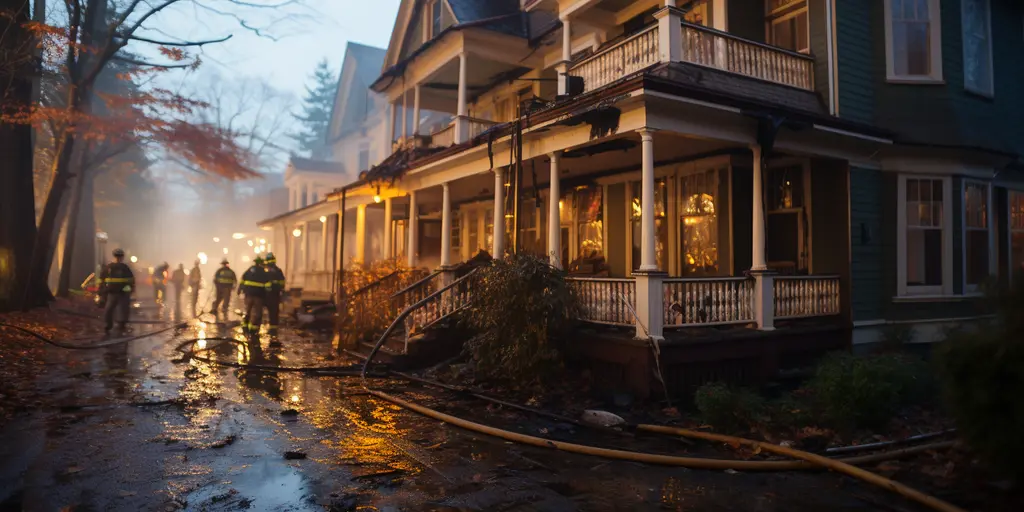The 6-Minute Rule for Dry Star Restoration
The 6-Minute Rule for Dry Star Restoration
Blog Article
Some Known Factual Statements About Dry Star Restoration
Table of ContentsRumored Buzz on Dry Star RestorationDry Star Restoration Things To Know Before You BuyThe Best Guide To Dry Star RestorationThe 6-Minute Rule for Dry Star RestorationDry Star Restoration Can Be Fun For Everyone
Particularly in winter months, home heating systems are an usual fire hazard. Malfunctioning circuitry or positioning heaters too close to flammable products like drapes can stir up a fire.
Products like motor oil or cleaning fluids can fire up under specific conditions. Constantly store these products appropriately and far from warm resources. water damage restoration company near me. Statistics: According to the National Fire Security Organization, house chemicals are accountable for a remarkable percentage of home fires annually. By recognizing these common causes, you can take steps to make your home much safer.
Dry Star Restoration Things To Know Before You Get This

Trick issues include: Water Invasion: Water can permeate right into walls, floors, and furniture. This can compromise the architectural honesty of your home. Build Development: If water is not dried out quickly, mold can begin to expand within 24-48 hours. Mold and mildew can create health problems and additional damages to your property. Structural Weakening: Water can compromise wooden structures and create steel components to corrosion, making your home hazardous.
Next off, we will dive into the actions involved in the fire damages repair process. Fire remediation is the process of cleansing, fixing, and restoring a home that has been harmed by fire.
The Best Strategy To Use For Dry Star Restoration
Debris Elimination and Demolition: Harmed products are safely gotten rid of, and any harmful materials like asbestos are dealt with properly. Fire damages incorporates numerous kinds of damage to a residential or commercial property: Physical Damage: This includes charring, blackening, and disintegration of materials directly affected by the fire.
Water Damage: Water utilized to snuff out the fire can cause architectural weakening and mold and mildew development otherwise effectively taken care of. Fire restoration professionals use specialized methods and tools to resolve all these kinds of damages, ensuring the building is safe and livable once more. Next, we will certainly study the actions associated with the fire damages repair procedure.
From advanced water extraction equipment to specialized devices for smoke and residue elimination, we have the resources required to recover your residential property to its pre-loss condition. Our techniques are developed to be extensive and reliable, lessening additional damage and quickening the recuperation procedure. Our team contains licensed service technicians who are professionals in fire damage learn this here now remediation.
The 3-Minute Rule for Dry Star Restoration
Their proficiency makes sure that every job is done right, giving you with comfort during a difficult time. If you need fire damages reconstruction solutions, don't hesitate to call us. We're below to aid you recover your home and your life after the fire. Last modified on 15th of July 2024.
(https://pinshape.com/users/7495568-dryst4rrstrtn#prints-tab-open)If there's a fire, smoke makes sure to comply with. While the fire's smoke is composed of aspects that make your home harmful to be in, the damages smoke leaves doesn't quit there. Smoke will float to relatively every part of your home, staying with furniture, design, drapes, wall surfaces, ceilings, floors, and much more.
The water will soak right into the charred products and infected other areas of the home unaffected by the fire. If left uncontrolled or missed throughout fire damage remediation, the water damage will just aggravate with time and can cause mold and mildew development, safety issues for your home's structure, and undesirable appearances around your room, consisting of distorted flooring, peeling paint, and visible stains.
A Biased View of Dry Star Restoration
Water mitigation is usually the primary step of the fire, smoke, and water damage repair process after a damages assessment has been finished. This addresses the water damage head-on and consists of actions to stop more troubles for your space before, during, and after restoration. Evaluation and damage control to assess the level of water damageIsolation of water damages to affected areas to prohibit water from spreading to dry areasInspection of your home's structure for structural stabilityExtraction of any type of standing water from the propertyStructural drying out with commercial-grade equipmentSite clean-up that will eliminate debris, pack out salvageable content for restoration, and make method for repair servicesWe'll also finish added damages mitigation by boarding up busted doors and windows, applying tarps to holes in roofings, and completing various other steps to avoid added damage and hazards to your home while the repairs are happening.
The majority of terms and summaries utilized by water and fire damage reconstruction professionals are fairly self-explanatory. Nonetheless, the list of terms listed below must be helpful when you're connecting with the firm you've hired. Any action taken to stop the development and dispersing of fungi, mold, mildew, and spores. This can consist of making use of solvents or chemicals as additives or barriers on structure materials to avoid fungus growth.
Report this page